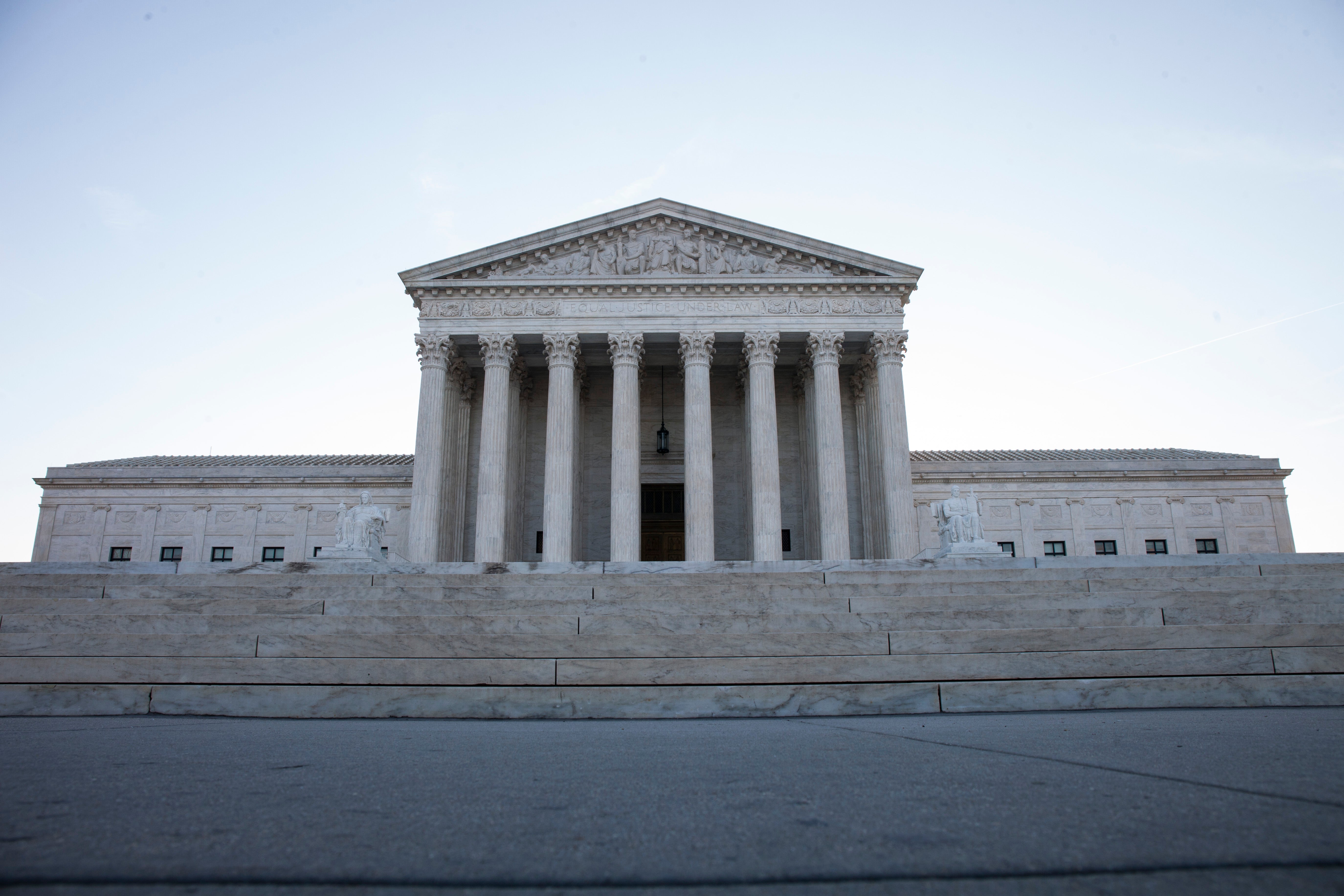US Supreme Court to hear cases on abortion and immigration
President Biden said that among his goals was ‘to reduce fear and confusion among impacted communities’

Your support helps us to tell the story
From reproductive rights to climate change to Big Tech, The Independent is on the ground when the story is developing. Whether it's investigating the financials of Elon Musk's pro-Trump PAC or producing our latest documentary, 'The A Word', which shines a light on the American women fighting for reproductive rights, we know how important it is to parse out the facts from the messaging.
At such a critical moment in US history, we need reporters on the ground. Your donation allows us to keep sending journalists to speak to both sides of the story.
The Independent is trusted by Americans across the entire political spectrum. And unlike many other quality news outlets, we choose not to lock Americans out of our reporting and analysis with paywalls. We believe quality journalism should be available to everyone, paid for by those who can afford it.
Your support makes all the difference.The US Supreme Court has agreed to rule on two Trump administration initiatives: one placing limits on a federal health program in an effort to restrict access to abortions, and the other denying green cards to immigrants who were considered likely to make occasional use of public benefits like food stamps.
Under the court’s ordinary schedule, the cases will be argued in autumn. But they may be moot by then, as president Joe Biden has signalled that his administration is reconsidering both measures.
The case on abortion referrals concerns a program known as Title X, which helps poor women pay for birth control, preventive health screenings for breast and cervical cancers, and treatment for sexually transmitted infections.
The programme, established under a law enacted in 1970, bars federal grants from being “used in programs where abortion is a method of family planning.” The precise meaning of those words is contested, and over the years it has been subject to varying interpretations by different administrations.
The Trump administration announced in 2019 that clinics receiving money under the program could not refer patients for abortions at other facilities. Major medical associations said this “gag rule” violated medical ethics, and Planned Parenthood withdrew from the programme.
Several states, the American Medical Association and others sued to challenge the measure, and federal appeals courts in San Francisco and Richmond, Virginia, issued conflicting decisions. Such splits often lead to Supreme Court review.
The cases the court agreed to review — Cochran v Mayor and City Council of Baltimore, No 20-454; American Medical Association v Cochran, No 20-429; and Oregon v Cochran, No 20-539 — may become irrelevant if the Biden administration revises the Trump administration’s restrictive regulations.
The immigration case, Department of Homeland Security v New York, No 20-449, concerns the so-called public charge rule, which seeks to discourage some immigrants from using public services.
The Trump administration announced in 2019 that it would revise the rule, which allows officials to deny permanent legal status, also known as a green card, to immigrants who are likely to need public assistance. In the past, only substantial and sustained monetary help or long-term institutionalisation counted, and fewer than 1 per cent of applicants were disqualified on public-charge grounds.
The administration’s revised rule broadened the criteria to include “non cash benefits providing for basic needs such as housing or food” used in any 12 months in a 36-month period. Use of two kinds of benefits in a single month counts as two months and so on.
Mr Biden has called for prompt review of the measure. Among his goals, he said, was “to reduce fear and confusion among impacted communities.”
In August, the US Court of Appeals for the 2nd Circuit, in New York, ruled against the Trump administration, saying the new program would chill participation in public services from people who are eligible for them.
The New York Times



Join our commenting forum
Join thought-provoking conversations, follow other Independent readers and see their replies
Comments